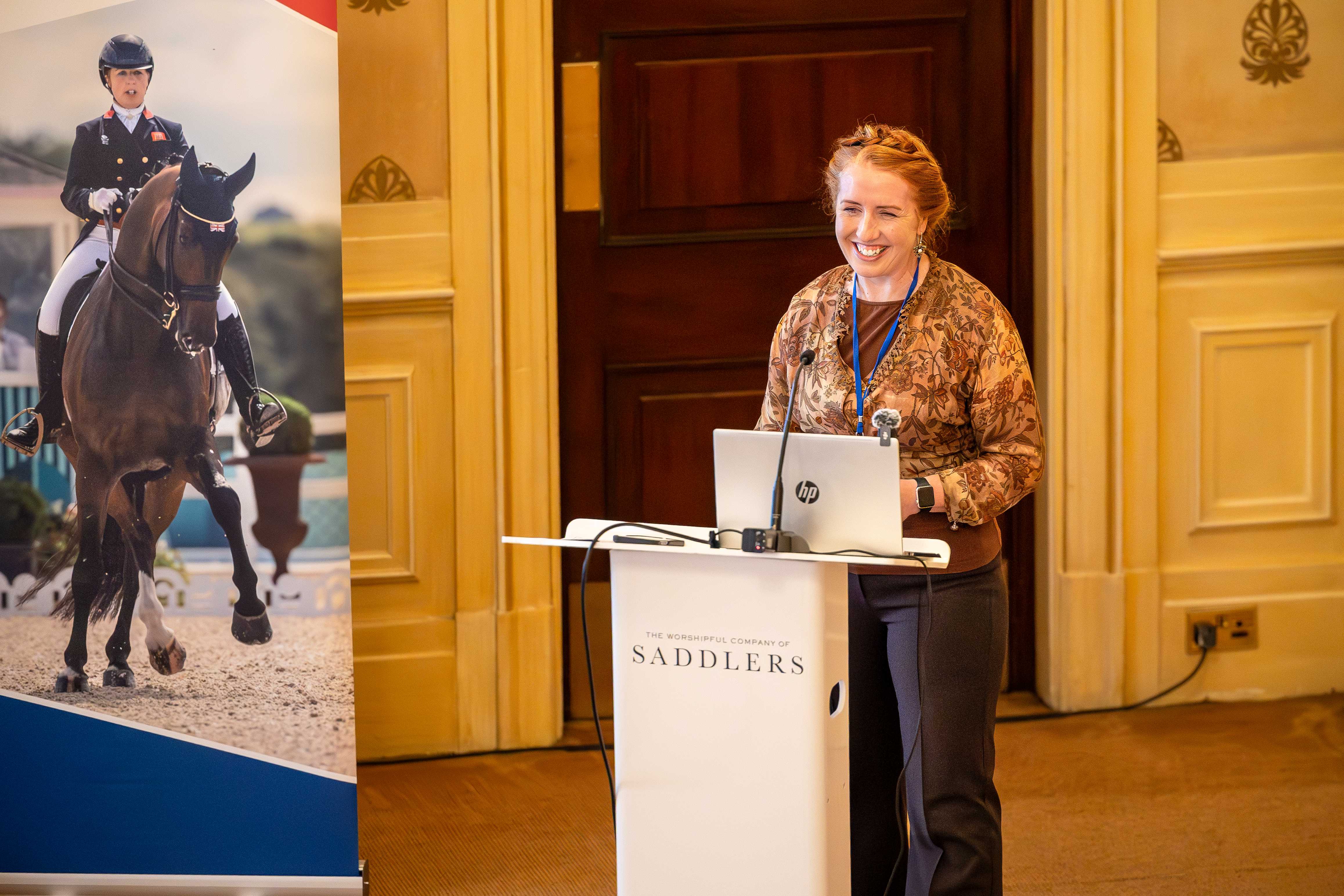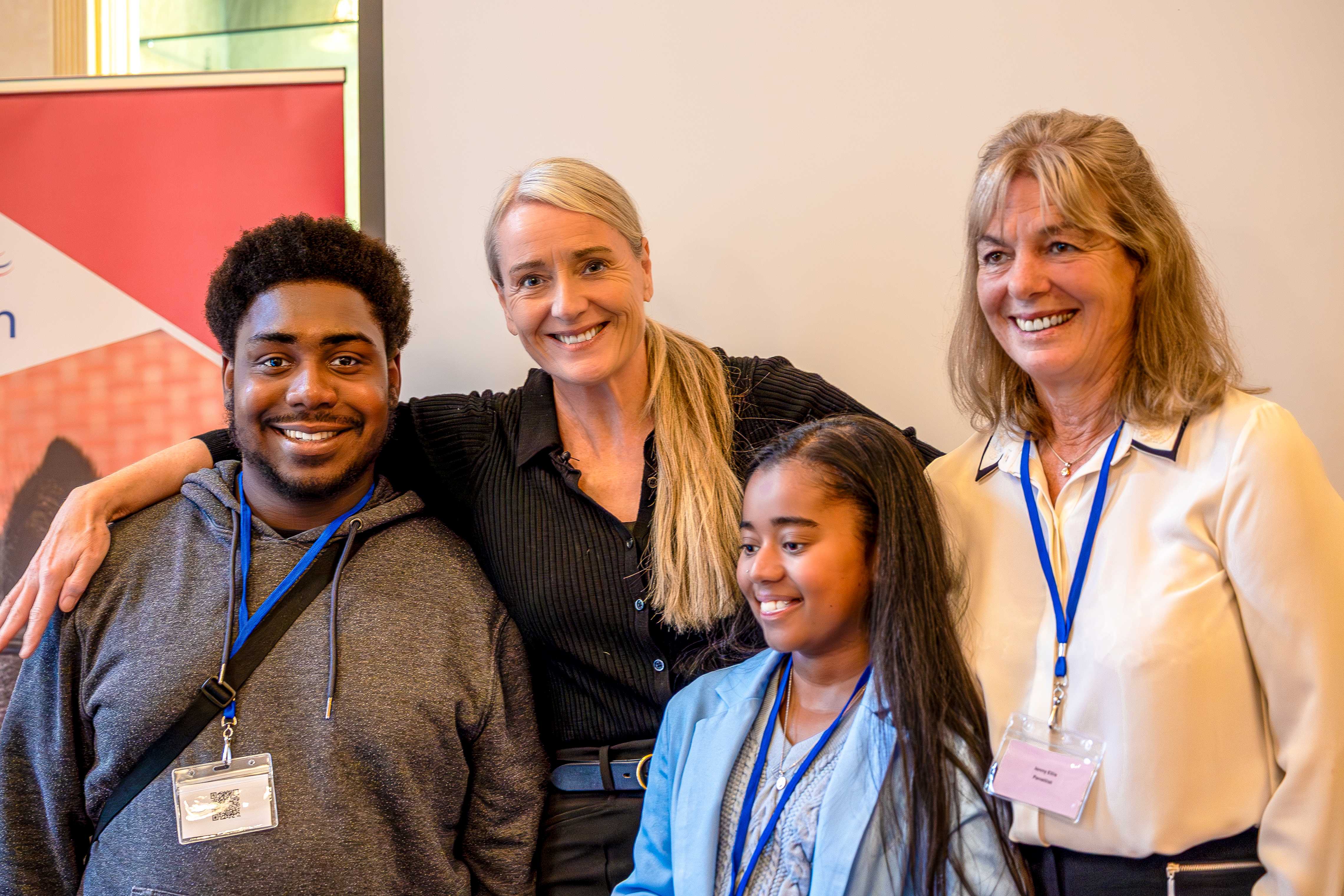Social value of equestrianism
Equestrian activity has extensive benefits for individuals and communities. Physical activity and social connection, along with the partnership with horses, brings a unique impact of the sector.
Our pioneering two-stage project to determine the true value of equestrianism for society has revealed our sector to be annually worth £1.2 billion in social value.
The UK government defines social or public value as “all significant costs and benefits that affect the welfare and wellbeing of the population” (HM Treasury ‘Green Book’, 2020). It includes both the direct benefit and value to individuals of improved wellbeing, and the wider value to society, including the state.
This project follows the research published by Sport England, which determined the value of physical activity for the UK.
Stage one
Published: 16 December 2024
Gathering evidence
Following a tender process by British Equestrian, a research team of Sheffield Hallam University and the Sport and Recreation Alliance conducted a systematic search of academic databases, supplemented by a call for evidence. This resulted in an overwhelming response of submissions, gathering 856 pieces of published literature and case studies.
After a thorough screening process, 290 of these pieces of evidence were included for the final analysis. A significant portion of these focused on equine-assisted therapy and its transformative effects on participants.
Key findings
The literature review identified compelling evidence of equestrianism’s positive contributions across five social outcome areas.
1. Physical health
- Equestrian activities, including riding and yard work, are classified as physical activity, meaning they help to improve cardiorespiratory function.
- Hippotherapy (the use of horse riding as a therapeutic or rehabilitative treatment) enhances motor functions such as balance, walking and posture, as well as reducing chronic pain.
2. Mental health
- Equestrianism benefits individuals with post-traumatic stress disorder, anxiety, depression and substance abuse problems by providing a calming and therapeutic environment.
3. Subjective wellbeing
- Horse ownership and equine-assisted therapy contribute to higher satisfaction levels, reduced stress and improved quality of life.
- Caregivers of individuals with disabilities also reported enhanced wellbeing due to their participation in equestrian activities.
4. Individual development
- Volunteering in equestrian settings builds long-term skills, employability and confidence.
- Equestrianism fosters pro-social behaviour and boosts self-esteem, although competitive settings can sometimes challenge confidence.
5. Social and community development
- Engagement with equestrian activities improves communication skills in neurodivergent individuals and those with dementia.
- Equestrianism helps participants develop strong community bonds through shared passions and experiences.
The research findings closely align with the government’s Get Active strategy and the health outcomes it seeks to achieve. British Equestrian and its member bodies works to support the goals of increasing activity levels, and improving physical and mental health across the population – the report highlights the unique social impacts equestrianism offers in addition to the national model. Due to the involvement of horses, it’s one of only a few types of physical activity to have the therapeutic benefits of animal-assisted therapy.
Read the findings of the social value literature review here:
A LITERATURE REVIEW OF THE SOCIAL VALUE OF EQUESTRIANISM: Full Report
A literature review of the social value of equestrianism: Exec summary
Stage two
Published: 08 October 2025
In May of this year, we partnered with State of Life to begin the second phase of our research. The aim was to draw on stage one findings, plus sector-level and national data, to calculate a monetary figure on equestrian social value and show that equestrian activity can be a vital contributor to public health.
The findings revealed that equestrianism annually delivers £1.2 billion of social value, with each riding centre providing an average of £292,000 worth of value per year. Those who regularly interact with horses know the benefits well, but these figures provide measurable evidence of our sector’s role as a national wellbeing resource.
The headline findings
- Total annual social value of equestrian activity in the UK: £1.2 billion
- 25% of this is generated by riding schools, with an average social value of £292,000 per school
- On-horse participation: £2,000 of social value per year for an adult riding twice monthly or £3,500 per year for a young person riding weekly
- Off-horse participation: £2,000 of social value per person per year
- Volunteering: £2,100 of social value per year for weekly volunteering or £1,000 per year for monthly volunteering.
Read the summary report: The Power of Horses: Social value of equestrianism
The launch
In front of a capacity audience that included representatives from across the sector, government and stakeholders, we held our powerful launch event at Saddlers’ Hall in London, hosted by BBC's Sonja McLaughlan. The day brought together the research teams who presented findings from both stage one and stage two, guiding the audience through the process and meaning behind the numbers.
The stories behind the data
Our keynote speaker, Becky Moody, gave an insightful talk, supplemented with a carousel of nostalgic photographs, about her journey in the equestrian industry, starting as a young Pony Club member, and through the turning points in her career. The key theme throughout was how in times of stress or anxiety, notably when she found out she was to make her senior championship debut at the Paris 2024 Olympic Games, time with her horses give her a safe space.

Pictured: Keynote speaker Becky Moody (Credit: Kirsty Pasto)
Our two discussion panels, which included people who have all had real experience of the true power of horses to change lives, added a new level of meaning behind the statistics within the research.
One member of the panel, Jehmar Jonas, spoke of his difficult experiences as a young boy growing up in a troubled area and losing his brother to knife crime. He found horses through Ebony Horse Club in London and now plays polo. Jehmar is now a youth worker and witnesses the special interactions even those most troubled can have with the horses.
“I feel like in my journey of healing from a lot of the things that I've witnessed and a lot of the things I've experienced, if it wasn't for those touchpoints of horses and places like Power of Polo and Ebony Horse Club, I wouldn’t be sitting here.” – Jehmar Jonas
Khianna Lucas-Young spoke of how, after battling leukaemia and other health conditions that left her paralysed and blind, she now rides with the Riding for the Disabled Association (RDA) and is grateful for the incredible volunteers who help her every time she rides,
“It's just a safe haven and it definitely did save me. Mentally, physically, in every way, shape or form, I owe everything to the RDA.” – Khianna Lucas-Young
See more of Khianna’s story here.

Pictured: Jhemar Jonas, host Sonja McLaughlan, Khianna Lucas-Young, Jenny Ellis (Credit: Kirsty Pasto)
Our project showcase panel included speakers from Wirral Riding Centre, who host the British Horse Society’s Changing Lives Through Horses programme, and Park Lane Stables RDA, who have both supported many people who need support through tough life events, helping them gain confidence, support and a trusting community. Representatives from Sport in Mind spoke about the charity's partnership with British Equestrian and how introducing this new sport has not only offered participants physical activity, but provides the opportunities to build unique relationships with the horses and a new passion for many.
Why it matters
This project marks a recognised way in how we understand and communicate the value of equestrian activity. It offers both narrative and numerical evidence that equestrian activity is more than just recreational – it’s a contributor to national wellbeing and a strategic asset for social development.
The findings demonstrate the crucial role of equestrian centres as local hubs with national impact. They are where many new journeys into our community begin, where volunteers give their time and where careers are built. Protecting these centres is vital for the sustainability of our sector and ensuring more people can experience the health and wellbeing benefits horses provide.
Importantly, equestrianism reaches audiences often underrepresented in other sports, including women, older adults, people from lower socio-economic groups and disabled people. This positions our sector as a powerful and accessible way to bring the benefits of physical activity in green spaces to communities who might otherwise be excluded.
“This research marks a significant milestone for the equestrian sector – the beginning of a new stage, where we are able to clearly demonstrate our contribution to public health and wellbeing. For the first time, we have solid, measurable evidence defining the true impact of equestrian activity for participants, volunteers and communities, while delivering real savings to public services. It provides the federation with a powerful platform to ensure equestrianism is recognised as a proven, accessible way to support the nation’s wellbeing.” – Jim Eyre, CEO of British Equestrian